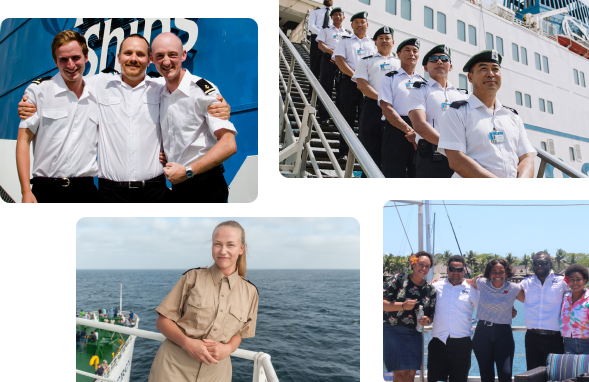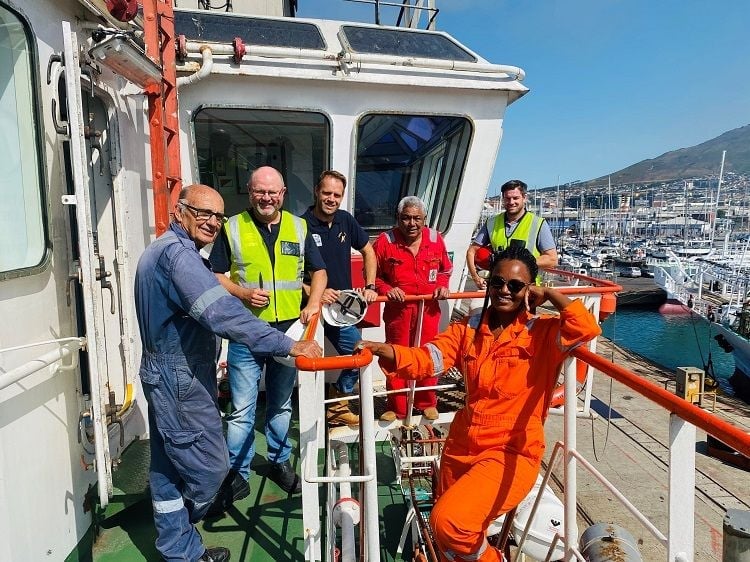10 Tips for Onboarding Seafarers in Maritime Recruitment

The onboarding process is a critical stage in ensuring the success of new seafarers joining a vessel. Especially if they’re new to your shipping company or manning agency, or are a cadet or junior rating entering the maritime workforce.
Under these circumstances, a structured and effective onboarding program helps them integrate smoothly into the crew, understand the vessel's operations, and meet safety and compliance requirements.
For maritime recruitment staff in the office and Heads of Department onboard, getting this process right is essential to building a cohesive crew and maintaining operational efficiency.
Why onboarding seafarers is important in maritime recruitment
In this blog post we’re going to take a look at some of the best practices for onboarding new seafarers that you, as a Recruitment Officer or Manning Agent, and as a senior crew member, can adopt.
We’ll also provide you with some actionable steps that will help you enhance a new hire’s experience and ensure their readiness for employment with your company or clients.

1. Begin the process before the seafarer embarks
Effective onboarding starts well before the new crew member sets foot on the vessel. A smooth pre-arrival process can set the tone for their entire contract.
Clear communication
- Provide detailed pre-arrival instructions, including travel arrangements, documents required, and reporting procedures.
- Share the ship's schedule, expected date and time of joining, and contact details of key personnel such as the captain or port agent.
- Send a checklist of necessary certifications, medical examinations, and training records to ensure they are prepared and compliant.
Pre-joining orientation materials
- Offer digital onboarding materials, such as welcome guides, vessel-specific manuals, and videos explaining the ship’s layout and operations.
- Highlight the ship's safety protocols, emergency procedures, and any relevant company policies to ensure they are familiar with basic expectations.
By setting clear expectations and providing useful information, you help new seafarers feel more confident and reduce unnecessary stress.
How Martide can help
In Martide’s maritime crew management software solution, the Crew Changes feature lets you easily organize on- and off-signing crew, arrange and book travel, and send all details to a seafarer via the Martide mobile app - which they should (hopefully!) have downloaded onto their phone!
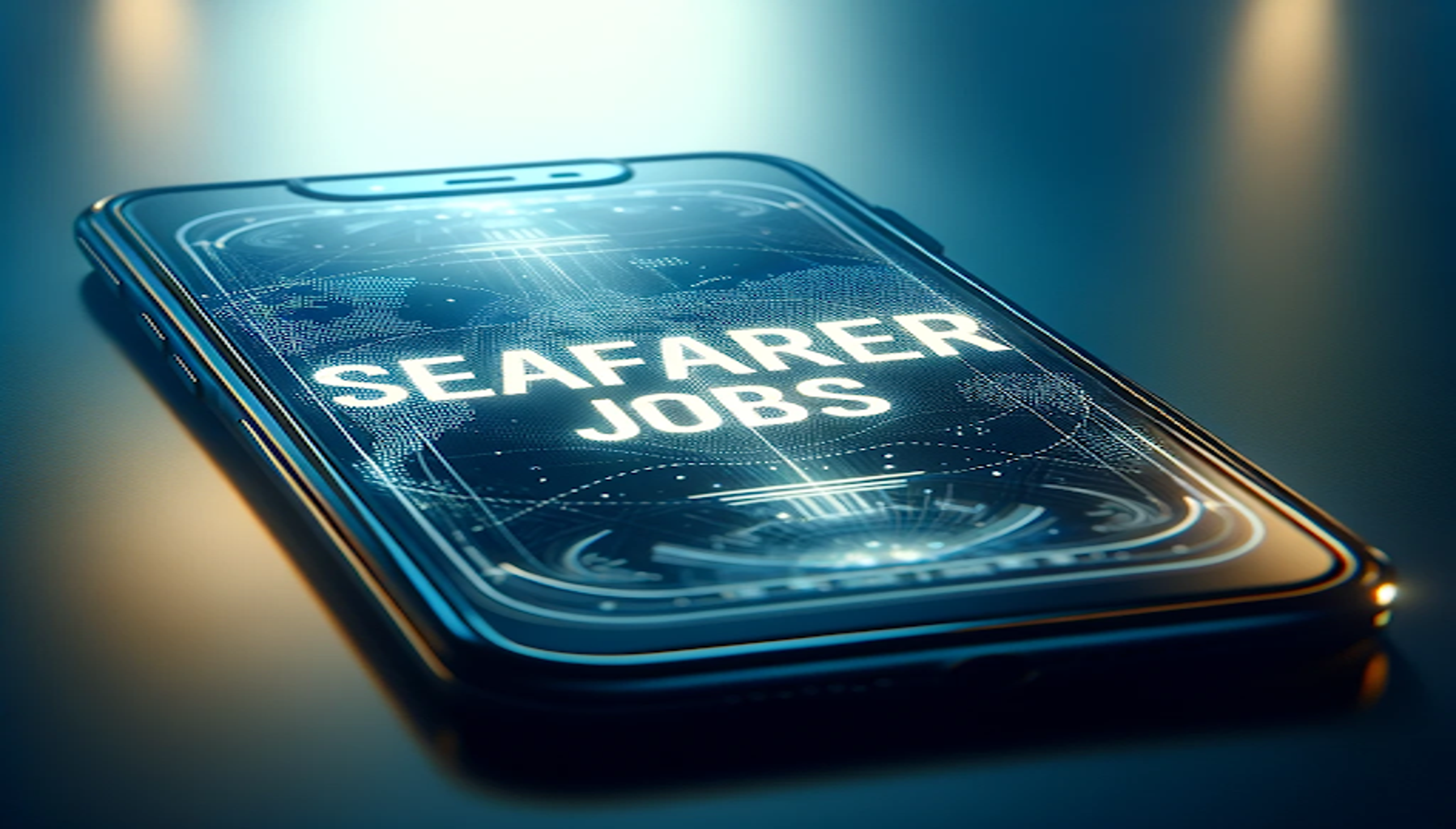
2. Ensure administrative compliance
Proper documentation and compliance with regulations are essential to avoid disruptions and ensure smooth operations.
Verify certifications and documents
- Double-check that the new seafarer’s certifications, medical exams, and visas are valid and up-to-date.
- Record copies of all documents in the ship’s administrative system.
Brief on company policies
- Provide an overview of company policies, including code of conduct, anti-harassment rules, and procedures for reporting grievances.
How Martide can help
Our maritime crew management software enables Recruitment Officers, Crew Managers and Manning Agents to upload copies of all paperwork - from visas to seaman’s books and from contracts to travel documents - into our secure system.
We also highlight when a document is missing so that any issues can be quickly rectified and copies of missing paperwork obtained.
3. Create a welcoming environment
Joining a new vessel can be intimidating. A welcoming atmosphere helps new seafarers feel part of the team and adapt more quickly.
Warm introduction
- Introduce the new seafarer to the entire crew during their first day. A simple meet-and-greet fosters camaraderie and teamwork.
- Share the crew hierarchy and explain the roles and responsibilities of key personnel.
Personal touches
- Prepare their cabin in advance, ensuring it is clean and stocked with essentials like linens, toiletries, and any welcome materials.
- Offer a small welcome kit with items like a company-branded cap, notebook, or pen.

4. Prioritize safety induction
Safety is the backbone of all maritime operations. Ensuring new seafarers understand the vessel's safety procedures and emergency protocols should be the top priority upon their arrival.
Comprehensive safety briefing
- Conduct an in-depth safety induction within the first 24 hours onboard. Cover topics like muster stations, life-saving equipment, and emergency drills.
- Familiarize the seafarer with the locations of fire extinguishers, first aid kits, and escape routes.
Practical drills
- Schedule hands-on safety drills for situations like fire, man-overboard, and lifeboat launching. Ensure the new seafarer actively participates to gain practical understanding.
Assign a safety mentor
- Pair a new and relatively inexperienced seafarer with an experienced crew member who can answer questions and reinforce safety protocols during their initial weeks onboard.
5. Clarify roles and responsibilities
Understanding their role onboard is vital for new seafarers to contribute effectively to ship operations.
Job-specific training
- Conduct role-specific training to familiarize them with the tools, equipment, and processes they will use. For example, deckhands might require training in mooring operations, while engine room staff might need an overview of maintenance procedures.
- Emphasize best practices and company-specific guidelines for their role.
Set clear expectations
- Outline daily duties, reporting lines, and performance expectations in detail.
- Provide a structured schedule for their first week, including shadowing opportunities with more experienced crew members.

6. Facilitate cultural and team integration
Modern merchant ships often have multicultural crews, and building rapport between team members is key to creating a harmonious working environment. A culture of inclusion should exist both within the office and onboard your vessels.
Read more: How to Boost Crew Retention with Tolerance & Diversity
Cultural awareness training
- Offer brief sessions or materials on cultural sensitivity, emphasizing mutual respect and communication across different nationalities.
Team-building activities
- Organize special event meals such as BBQs, movie nights, or recreational activities to encourage bonding.
- Celebrate birthdays or milestones onboard to foster a sense of community.
How Martide can help
When employers and manning agencies who have an employer account log into Martide, they will see their user dashboard. In this dashboard there is a section for crew birthdays.
This shows them who has a birthday coming up in the next 30 days and gives them the option to send them a friendly greeting through the inbuilt Martide message inbox.
This is a great way for Recruitment Officers and Crew Managers to let seafarers know they are appreciated by the team ashore, as well as by their crew mates and Head of Department onboard.
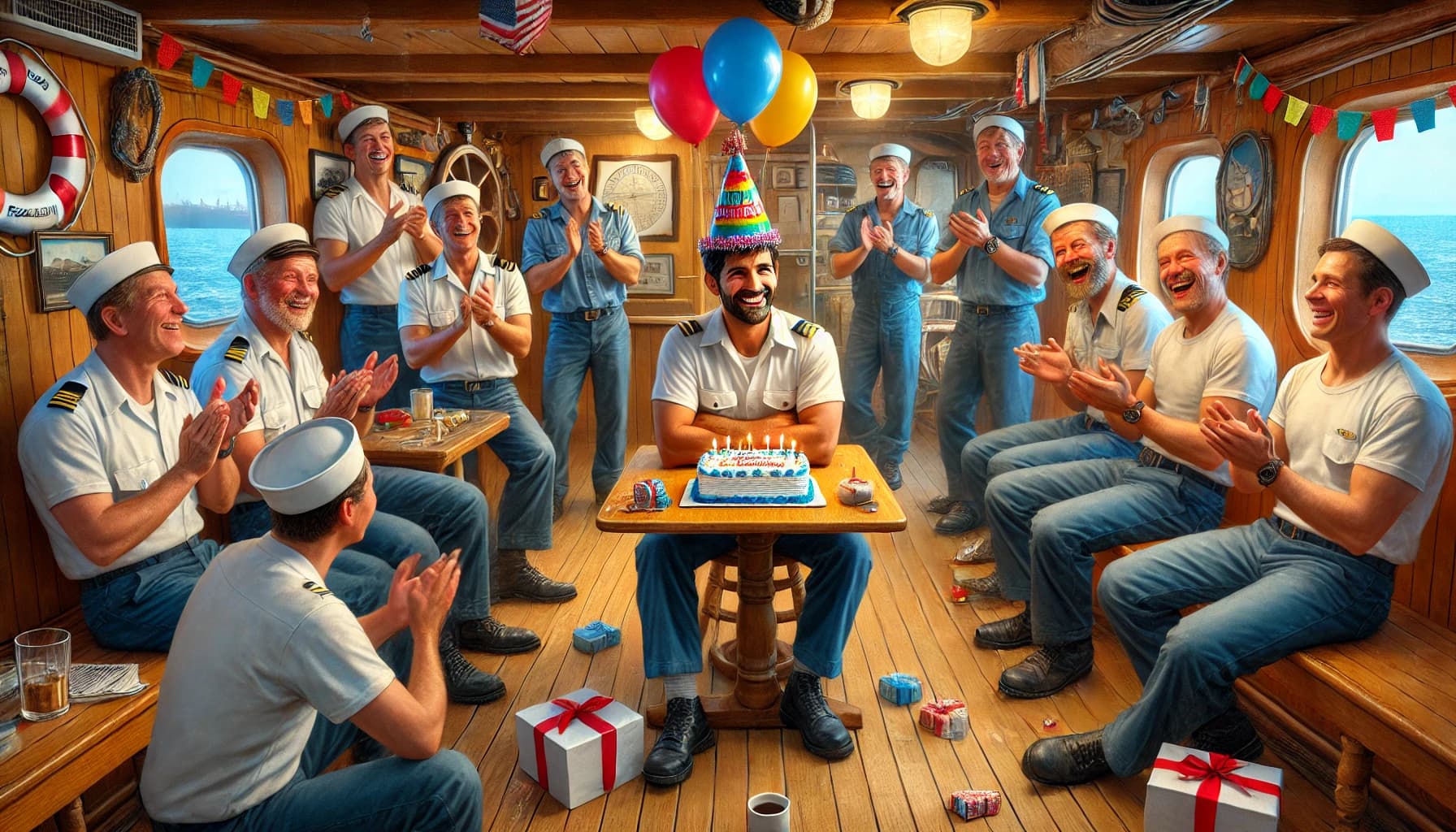
7. Focus on mental health and wellbeing
The isolation and demanding nature of maritime work can take a toll on mental health. Addressing wellbeing during onboarding sets a positive tone for the contract.
Provide mental health resources
- Share information on available mental health support, such as helplines or onboard counseling services.
- Train Heads of Department onboard to recognize signs of stress or burnout and provide timely support.
Encourage open communication
- Clear communication is essential in the maritime industry. Create an environment where new seafarers feel comfortable discussing concerns with both their superiors and peers onboard their vessel, as well as with their contact in the office on land.
Read more: Why Great Communication is Essential for Crew Retention
8. Implement continuous feedback mechanisms
Onboarding isn’t just a one-day event; it’s an ongoing process. Gathering feedback helps refine the experience for future seafarers.
Check-ins
- Schedule regular check-ins during the first month to address any concerns or challenges.
- Ask the new seafarer how they’re adjusting to life onboard and whether additional support is needed.
Surveys and feedback forms
- Use anonymous surveys to collect insights on both the onboarding process and about the job, contract, vessel and other aspects of your crew’s life at sea. This information can be invaluable for improving the experience for new recruits and help retain existing seafarers.
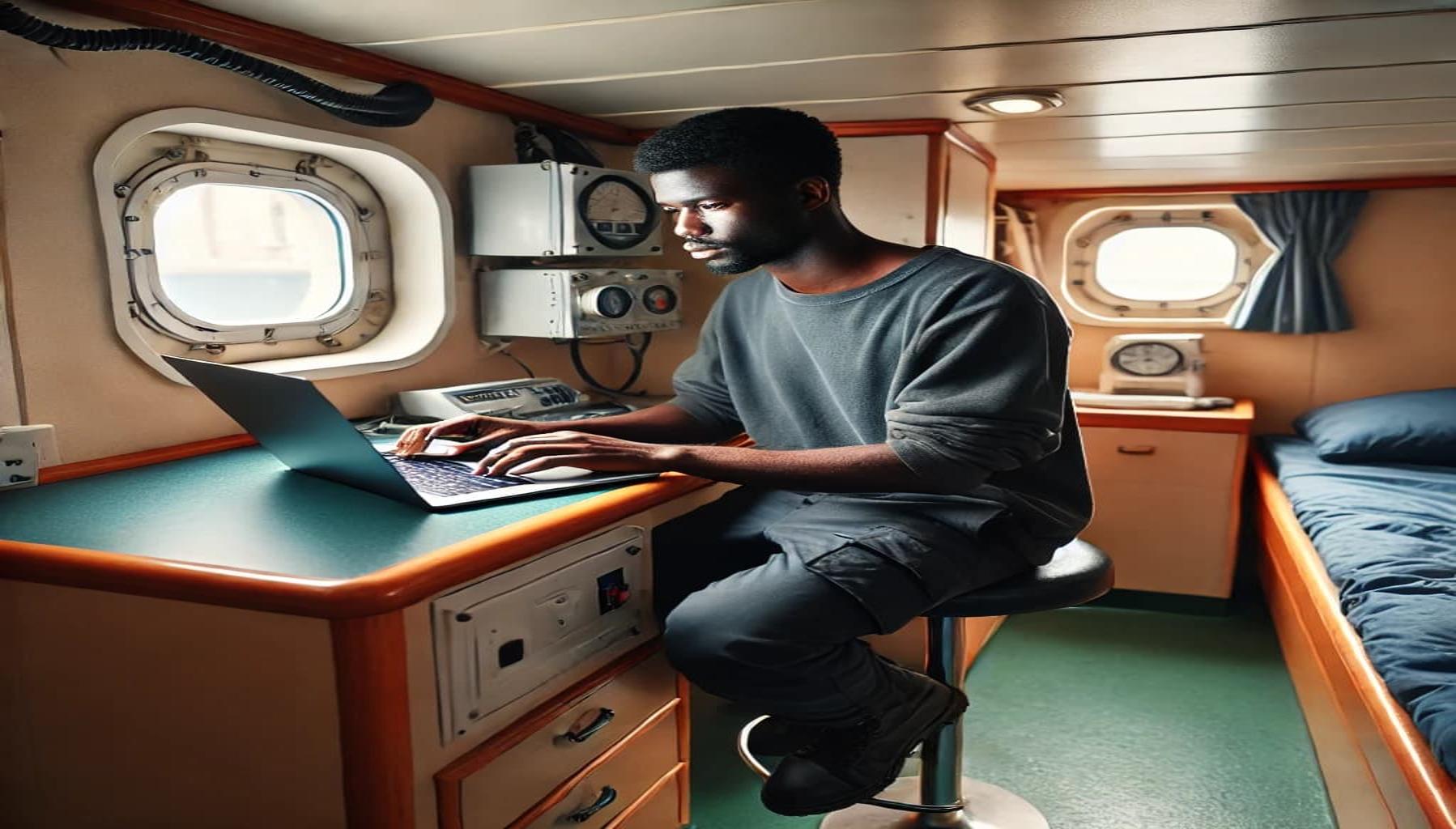
How Martide can help
Martide’s maritime crew management software includes a feature called Forms. As well as letting you quickly and easily create interview templates, Forms also let you create questionnaires which can then be used to gather information and feedback from your crew.
9. Leverage technology for onboarding
Modern maritime companies can use digital tools to streamline the onboarding process - such as our maritime crewing system!
Maritime crew management software
- Run your hiring, interview and contract-signing process using a maritime recruitment software solution.
- Use maritime-specific software to manage certifications, track training completion, and ensure compliance.
- Share digital copies of manuals, safety protocols, and training materials through the platform.
Virtual training tools
- Incorporate VR or AR training modules to simulate onboard scenarios like fire emergencies or mooring operations.
How Martide can help
Martide is a maritime recruitment and crew management software solution that we’ve created to address the needs of small to medium-sized Crew Managers and Manning Agencies.
From finding seafarers using our global database, to hiring them, planning crew change overs and more, we help you better manage the entire life-cycle of your crew.
Want to find out more? Request a demo of our crewing system software now.

10. Monitor performance during the probation period
The first few months are crucial in determining whether a new seafarer is a good fit for the vessel and your company or your client’s company. Monitoring performance and providing constructive feedback ensures they align with the crew and employer's expectations.
Set Key Performance Indicators (KPIs)
- Define KPIs for the probationary period, focusing on safety compliance, technical skills, and teamwork.
Offer constructive feedback
- Provide regular feedback, highlighting both strengths and areas for improvement.
- Encourage open dialogue to address any challenges the seafarer may face.
Maritime recruitment best practices: conclusion
Onboarding new seafarers is a vital process that sets the foundation for their success and contributes to the overall performance of the vessel. For maritime Recruitment Officers, Manning Agents and Heads of Department, following these best practices can create a seamless onboarding experience that fosters safety, teamwork, and operational efficiency.
By prioritizing safety, clear communication, and integration into the crew, you not only enhance the new seafarer’s experience but also strengthen the ship’s culture and productivity. With the right tools and a structured approach, onboarding can become a powerful tool for building a resilient and motivated team and increasing your crew retention rates.
Like the ideas we gave you in this post regarding how Martide can help you with all of the above ideas and pointers? Get in touch with us today and we’ll be delighted to tell you how our recruitment and maritime crew management software solution can transform your business.

Eve Church
Eve is Martide's content writer, publishing regular posts on everything from our maritime recruitment and crew planning software to life at sea. Eve has been writing professionally for more than two decades, crafting everything from SEO-focused blog posts and website landing pages to magazine articles and corporate whitepapers.
UK

is the only site for maritime jobs
